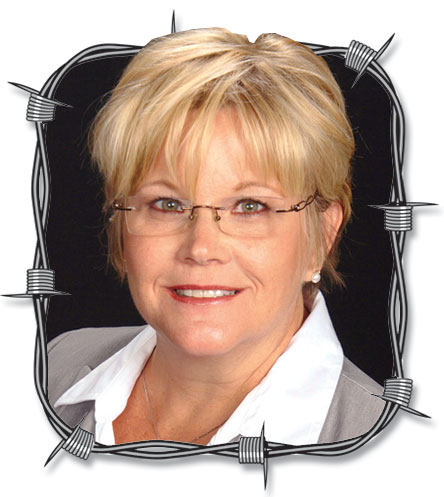 The new tax law signed by President Trump, called the Tax Cuts and Jobs Act (TCJA), has several provisions beneficial to owners and breeders in the horse and livestock industries. I will discuss some of the highlights.
The new tax law signed by President Trump, called the Tax Cuts and Jobs Act (TCJA), has several provisions beneficial to owners and breeders in the horse and livestock industries. I will discuss some of the highlights.
New Deduction for Pass-Through Businesses: The new law changes how “pass-through” entities, such as sole proprietorships, partnerships, S corporations and LLCs, are taxed. This includes 85 percent of owners in the horse and livestock industries. Now, for the first time ever, the owner’s qualified business income (QBI) from pass-throughs is allowed a 20 percent deduction, subject to restrictions that can apply at higher income levels. This constitutes a 20 percent tax cut for pass-through filers.
QBI is generally defined as the net amount of qualified items of income, gain, deduction and loss from any qualified business of the noncorporate owner. (QBI does not include certain investment items, reasonable compensation paid to an owner for services rendered to the business or any guaranteed payments to a partner.)
Also, the new law provides the top rate on income earned by owners of pass-through business at 37 percent – which is a slight reduction from the former 39.6 percent rate.
The pass-through provisions are an incentive for employees to become independent contractors. Many personnel working in the horse and livestock industries are already independent contractors, such as trainers, laborers, farriers, veterinarians, vendors, etc.
Immediate Expensing and Bonus Depreciation: For property placed into service in tax years beginning after December 31, 2017, the new law increases the maximum amount a taxpayer may deduct (or “expense”) to $1 million, and increases the phaseout threshold to $2.5 million.
The “bonus depreciation” deduction for breeding stock, race horses, farm machinery and equipment will now be 100 percent, an increase from the former 50 percent rate, for property placed in service after Sept. 27, 2017. This applies to new or used property purchased by the taxpayer. (Starting in 2023, bonus depreciation will go down to 80 percent.)
Estate Tax
The long-disputed estate tax has been modified so that the exemption for married couples will be $10.98 million, compared to the former exemption of $5.49 million. This will greatly reduce the number of family businesses susceptible to the estate tax.
New Corporate Tax Rate:
For operations conducted as C corporations, the new law reduces the corporate income tax rate from 35 to 21 percent. Many large breeders and ranchers, as well as racetracks, conduct business as C corporations.
Limitation on Losses
There are stricter rules for deducting losses. The maximum amount of taxable income that can be offset with net operating loss (NOL) deductions is generally reduced from 100 to 80 percent. NOLs can be carried forward indefinitely. However, NOLs can no longer be carried back to an earlier year, except for certain farming losses, which can be carried back for two years.
The “hobby-loss” rules remain the same in terms of the taxpayer’s need to prove that the activity is engaged in for profit if there is a history of losses. This means that, as before, it is important not only to keep records to prepare accurate income tax returns, but to also keep records that measure your activity’s financial performance.
The IRS is already grappling with a prolonged funding cut, a staff reduced by 23 percent since 2010, and outdated computers. The IRS will need to write countless guidelines and regulations to clarify key terms and concepts in the new law, as well as design new forms. Thus, enforcement and auditing capabilities are likely to drop significantly.
John Alan Cohan is a lawyer who has served the farming, ranching and horse industries since 1981. To contact John Alan Cohan, go to ozarksfn.com and click on ‘Contact Us.’





